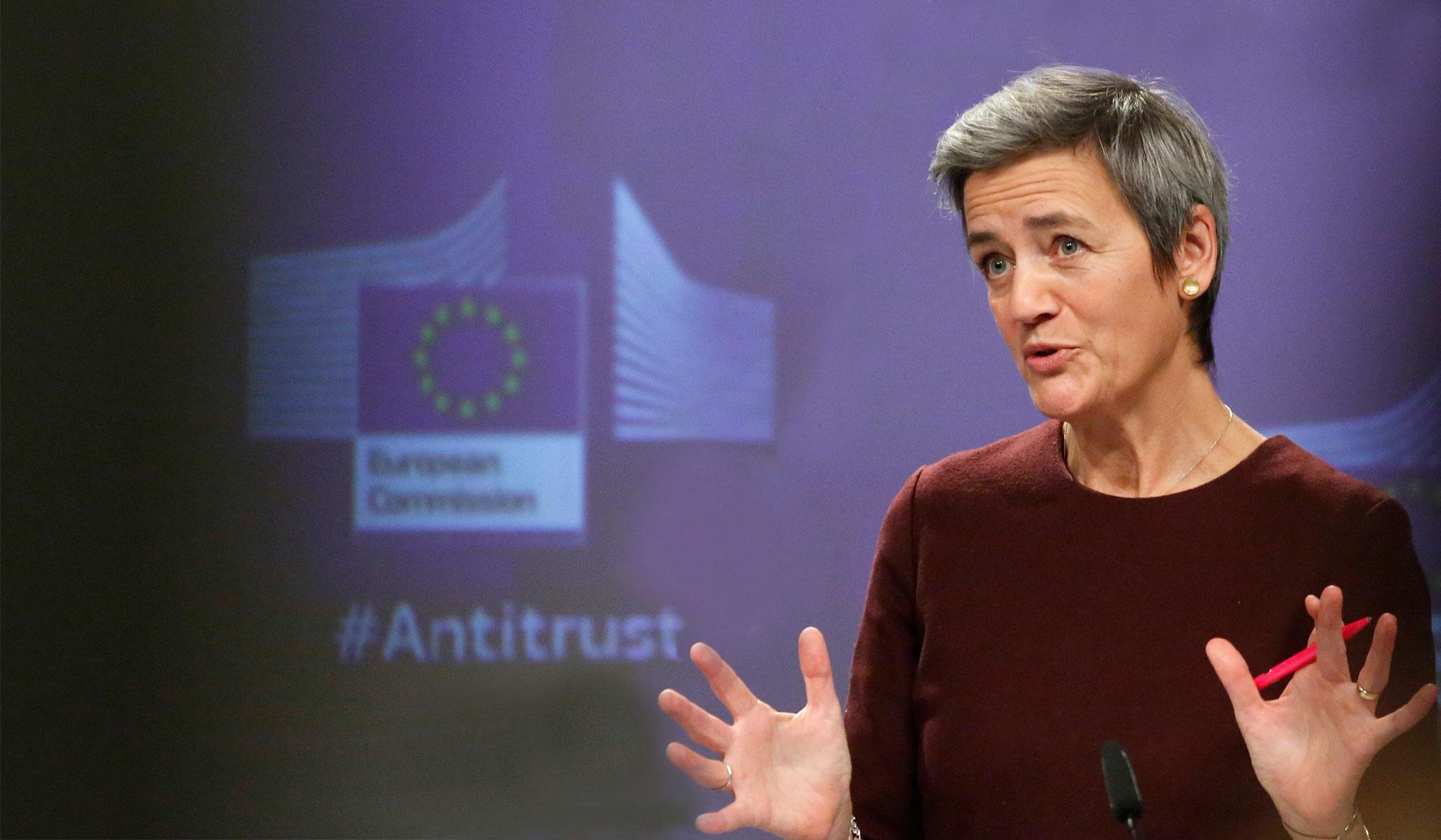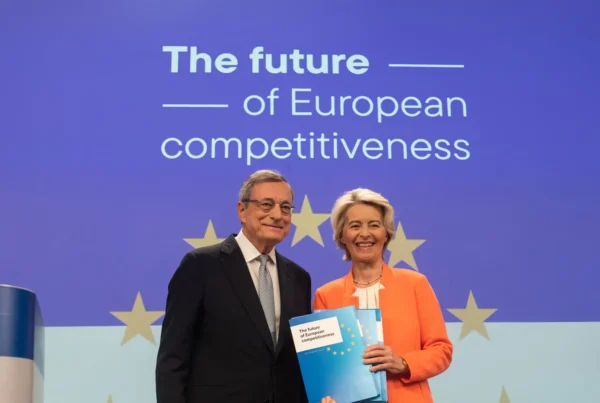Amid unprecedented levels of public and political scrutiny, market dominance of Big Tech is coming under pressure. Using competition law to attack the overpowering market might of companies such as Google, Microsoft, Facebook (Meta), Twitter and others, regulators have stepped up their game to fight these internet giants in a Manichean battle.
Jamie Bergin, 8 December 2021
The leading five Big Tech giants – Alphabet (Google), Amazon, Apple, Meta (Facebook), and Microsoft – are facing unprecedented levels of public and bipartisan political scrutiny in response to serious allegations and incriminating leaks. Information obtained through whistleblowers and recent leaks underscore what many had been suspecting for a long time: Big Tech is engaging in socially harmful behavior, ranging from facilitating political censorship to unethical surveillance and marketing practices and breaches of privacy and data protection law.
Yet profits have barely budged. The outsized influence of Big Tech firms in the digital market makes them essentially immune to shocks. Indeed, many of their services are so essential to market infrastructure that a ‘dissenting’ user would find it difficult to get around not using their services. Nevertheless, this so-called immunity is cracking. Recently, a staggering number of investigations against Big Tech have been launched using antitrust (or competition) law. These investigations focus on Big Tech’s anti-competitive practices and market power and their effect on consumers and competitors.
Tackling Big Tech through the lens of ‘antitrust’ law is taking place not only in the US, but also in many countries all over the world. Lawsuits are being launched from India to Japan and even in China, where many of Big Tech’s services are prohibited. Equivalent Chinese companies such as Alibaba are coming under increasing pressure from the Chinese government. However, it is in Europe, more than anywhere else, that the new rulebook is being written.
In recent years, the European Commission, under the helm of Commissioner for Competition Margrethe Vestager, has had ongoing or concluded competition-law-based investigations against all five of the aforementioned Big Tech firms. These efforts just received a big boost on 10 November when the European General Court (EGC) refused Google’s appeal against a EUR 2.42 billion fine handed down by the Commission in 2017.
The Commission had ruled that Google used its search engine service to promote its own comparison shopping service and, thus, had unfairly disadvantaged other comparison shopping service providers. Despite the fact that the EGC ruling may be appealed at the Court of Justice of the European Union, and that Google still has outstanding appeals against two other EU Commission fines it collected, the case seems a harbinger of things to come. Google threw an entire arsenal of lawyers at the appeal, but still lost. However, the question remains; even if these lawsuits can be won, is competition law the answer to taming Big Tech?
On the one hand, the approach has more or less failed in the past – since the 1990s Microsoft has faced countless antitrust lawsuits, but is still alive and very well. Although these lawsuits are typically long, cumbersome and very costly, their deterrent effect is unclear – a USD 2.8 billion fine is entirely affordable for Google. So, Big Tech is still very far from being backed into a corner where they have no other choice but to change their practices.
On the other hand, there is reason for hope with the antitrust approach. The more lawsuits are won, the more regulators and other competitors, many of whom really have nothing to lose, will launch their own lawsuits. This ‘war of attrition’ may wear Big Tech down. In the days following the General Court’s decision on the Google fine, Amazon reportedly started to make internal plans towards settling its own case with the EU Commission.
Furthermore, these lawsuits have proved amenable to the creation or refining of new principles to be applied in what is still in many respects legal terra nova – the regulation of digital markets and services. For example, in its Google investigation, the Commission drew on the novel concept of self-preferencing practices. Self-preferencing considers how digital structures can facilitate the abuse of a dominant position in one market to gain influence in another. The EGC even relied on Google’s own traffic data to assert its findings.
The more cases won, the greater the momentum to codify these principles into new legal instruments. In 2020, the EU Commission proposed new antitrust legislation – the Digital Markets Act and the Digital Service Act – specifically geared towards the tech sector. In the US, five similar bills have been submitted to Congress. Some are going one step further and calling for Big Tech to be treated like a public utility and/or common carrier and be subject to regulation (cf. State of Ohio v. Google LLC).
Finally, the silver bullet of antitrust law still remains in the arsenal of the regulators: breakups. This essentially means structurally separating firms so they can no longer exercise their market dominance. Despite this idea being floated by politicians such as Elizabeth Warren, and the existence of historical examples such as the telephone conglomerate AT&T, breakups still seem to be a step too far for most regulators. How long this will remain the case is up for debate. Increasing public and political awareness of the social harms posed by Big Tech firms may soon be followed by the recognition that their monopoly power and market dominance is not incidental to these harms, but in fact enables and spreads them.
In the face of criticism of Google’s effect on competition, Google co-founder Larry Page once retorted: “Competition Is One Click Away”. If Big Tech firms prove unwilling to admit their problems and remain unwilling to adapt to the current pressure of this antitrust momentum, regulators might very soon be clicking on the exit button.
Picture: November 18, 2021, Brussels, Belgium: European Commission Vice-President in charge of Europe Fit for the Digital Age, Margrethe VESTAGER holds a press conference on European competition policies at the EU Commission in Brussels, Belgium, November 18, 2021. © IMAGO / ZUMA Wire
Other Articles Which Might Interest You
⇒ Can the EU Digital Services Act Succeed in Controlling Big Tech and Protecting Consumer Rights?
⇒ EU Digital Markets Act To Regulate Unfair Practices of US Tech Giants





